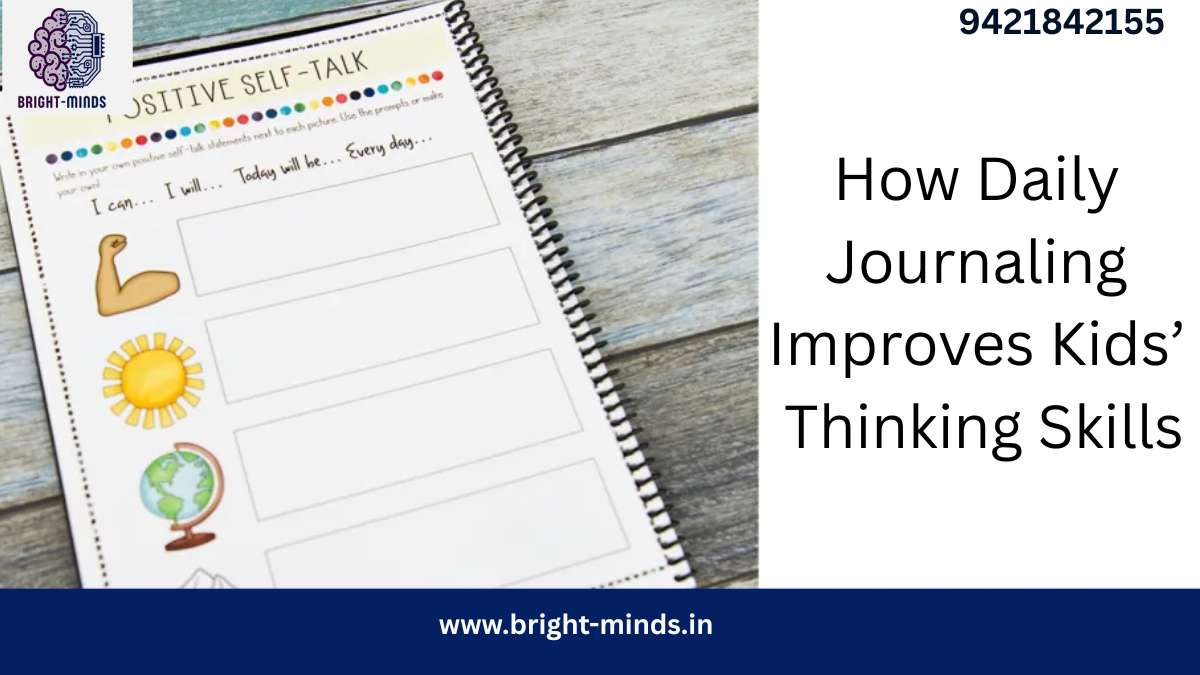In today’s digital world where screens dominate attention and instant gratification rules, one simple, low-tech habit is quietly shaping sharper, more thoughtful minds in children—daily journaling.
It’s not just about writing thoughts down. Daily journaling helps kids think more clearly, understand their emotions, solve problems creatively, and develop the very skills that lead to lifelong success—both academically and emotionally.
Whether you’re a parent, teacher, or even an employer looking to support employee families with powerful growth tools, this article gives you everything you need to know to get started with daily journaling for kids.
🧠 Why Thinking Skills Matter for Kids
Before we dive into journaling, let’s look at why thinking skills are essential for every child:
- Critical Thinking: Helps kids make better decisions, analyze information, and avoid poor judgment.
- Creative Thinking: Encourages innovation, problem-solving, and self-expression.
- Emotional Intelligence: Journaling fosters reflection, empathy, and understanding of one’s own emotions.
- Focus & Memory: Writing things down boosts retention and attention to detail.
And the best part? Journaling strengthens all of these areas naturally—without pressure.
📘 What Is Daily Journaling for Kids?
Daily journaling is the practice of encouraging children to write about:
- Their day or experiences
- Their thoughts and feelings
- Prompts like “What made me happy today?” or “One thing I learned today”
- Goals, dreams, or even drawings for younger kids
It can be as short as 5–10 minutes a day. The key is consistency, not perfection.
📊 Market Trends & Industry Insight
The educational wellness industry has seen a surge in interest around journaling, mindfulness, and emotional development tools for kids.
- 📈 Journaling kits and guided notebooks have grown in popularity by over 30% year over year according to educational product marketplaces.
- 🧑🏫 Many schools now integrate SEL (Social Emotional Learning), where journaling is a core activity.
- 💼 Companies focused on employee wellness are introducing journaling challenges for families, boosting employee satisfaction and child development.
Big names in EdTech and publishing like Scholastic and Crayola have also launched child journaling products, recognizing the huge demand for tools that support reflection and cognitive development.
💡 Real-World Benefits of Journaling for Kids
🗣 1. Improves Communication Skills
When kids journal, they naturally expand their vocabulary, learn sentence structure, and practice organizing thoughts.
Example: A child writing about their birthday party learns how to describe events in sequence—a key storytelling skill.
🔍 2. Builds Self-Awareness and Focus
Journaling gives children a chance to slow down and notice what they’re feeling, what they did well, or what they want to improve.
Example: After a tough day at school, writing it out helps them process instead of bottling up emotions.
🧠 3. Strengthens Critical Thinking
Answering prompts like “What could I have done differently today?” or “What would I do if I were president?” trains kids to evaluate situations and make thoughtful decisions.
🎨 4. Boosts Creativity
Blank pages invite imagination. Kids may write stories, doodle, create poems, or invent new worlds—perfect for building divergent thinking.
📈 5. Improves Academic Performance
Studies show that journaling enhances memory retention, improves handwriting, and helps with subjects like reading comprehension and grammar.
🧪 A 2022 study published in the Journal of Educational Psychology found that 4th graders who journaled daily scored 17% higher in reading comprehension than those who didn’t.
🏡 How Parents & Educators Can Get Started
Want to introduce daily journaling to your child or students? Here’s how:
✅ Choose the Right Journal
- Younger kids: Use journals with prompts and drawings
- Older kids: Let them choose their own notebook or a guided journal
✅ Set a Routine
- Make journaling part of bedtime, morning routine, or after school.
- Keep it short (5–10 minutes) and pressure-free.
✅ Offer Prompts
Some kids need a little help getting started. Try these:
- “What made me laugh today?”
- “One thing I did well today…”
- “What would I do with a million rupees?”
- “What superhero power would I love to have?”
✅ Don’t Correct Everything
Journaling is about self-expression, not grammar tests. Let the focus be thoughts, not spelling.
✅ Model It Yourself
When kids see adults journaling, they’re more likely to do it too.
💼 For Companies: Journaling as a Family Wellness Tool
If you’re a company looking to support employee families, daily journaling offers a low-cost, high-impact initiative.
✅ Include journals in family wellness kits
✅ Host a 21-day journaling challenge for employee families
✅ Offer workshops on parenting and emotional development
✅ Partner with EdTech platforms offering digital journaling tools
Supporting kids’ thinking skills = supporting tomorrow’s leaders.
🌟 Final Thoughts: Small Habit, Big Impact
Daily journaling may seem like a small habit—but its long-term effects on a child’s brain, confidence, and emotional well-being are massive.
In just a few minutes a day, children can:
- Think better
- Feel more grounded
- Solve problems more creatively
- And become more independent learners
It’s an investment that pays off for life.
You may be like this:-
The Magic of Numbers: Fun Math Tricks for Kids – Make math exciting with simple and cool tricks!

